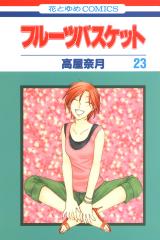This work represents the turning point of Natsuki Takaya's career. Given the length of the series, it's easy to expect a drastic change in art and storytelling by the end of the tale. As it is, this work represents everything that makes Takaya who she is.
As her longest-running series, a large shift happened as the story goes on: it begins with her 90s-style art, following the trends of ukiyo-e-inspired girls' comics of the time, but changes heavily by the end where things are much smoother and more organic, appearing more clean and soft. It moves into a very modern-looking art style, though no less beautiful.
The storytelling also changes. As the story progresses, things become much more emotionally straining, and Takaya shows off an incredible skill. In previous works, depression was always very constricting on the reader; it effectively gave a taste of the sharp edge of such deep despair and could be difficult to go through. As such, the shorter works suited this. However, given the length of this story, changes had to be made. Although things were more comedic for a long while, the sad moments early on were never especially "deep". The story never put the reader in pain. By the end, however, things become much more heavy, but Takaya's style has shifted by then: by the end of the story, this "depression" begins to feel less like tearing or drowning (a sharp pain) and more like a simmering melancholy.
The style Takaya adopted in this story has persisted since then, but this work may very well be the best one she has created. It takes all the best aspects of her earlier style and slowly evolves into something new that hasn't been replicated quite so perfectly; the evolution from one type to the next creates something greater than could be done either before or after the change has been finished.
Fruits Basket is a wonderful work that anyone and everyone should read. It is truly one of the greatest comics ever drawn.





